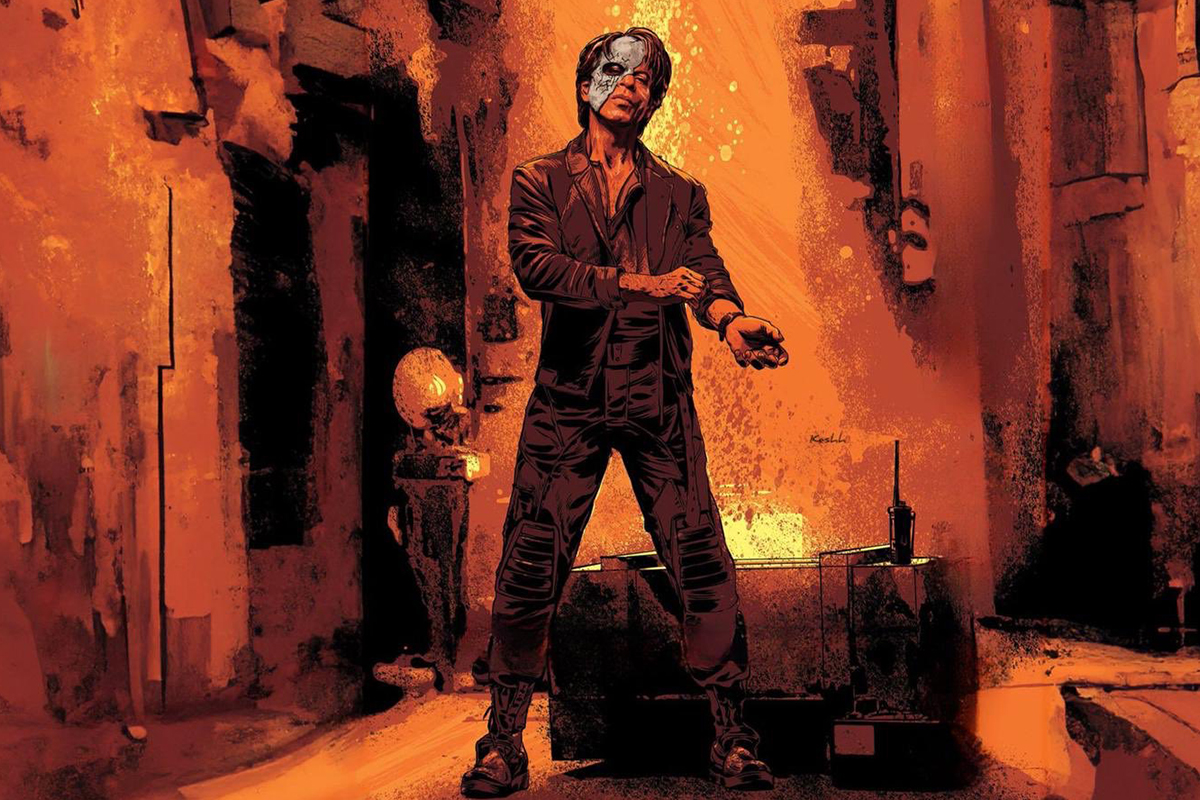
For many, ‘Jawan’ is an indictment of the state of the nation over the past few years

I typed ‘bet’ on Google, and ‘bete ko’ showed up as the second option. I opened that, and several clips of a short scene from the new film ‘Jawan’ popped onto the page: ‘bete ko haath lagaane se pehle, baap se baat kar.’
The line had already gone viral within hours of the film’s release last Thursday. Audiences were instantly reminded of the arrest on a party cruise boat and subsequent harassment of Aryan, the son of superstar Shah Rukh Khan.
In the film, that line is uttered by the very same Shah Rukh, around whom the entire film revolves. The fact that his wife, Gauri Khan, is listed as the producer of the ₹300 crore-budget film drove home the point that the parents may well have had their son’s ordeal in mind when they went over the script.
Those who like to find double meanings in everything, might point out that Khan utters that line as he comes out of a bout of amnesia — a possible allusion to the almost two-year gap between that arrest and the release of this film.
Layers of indictment
Viewers who revel in discerning layers of meaning would be fascinated by several elements of the film. If they see the film partly as a retaliation for what happened to Aryan, they might also see it as an artistic comeback for Dr. Kafeel Khan, who was jailed after obtaining life-saving oxygen cylinders on his own for children who were his patients in Gorakhpur in August 2017.
ALSO READ: Protecting Kashmir’s forests, water bodies is vital
The villain, who dominates the film more than anyone except Shah Rukh Khan, is a white-bearded man with piercing eyes. In one shot, he is seen in the gym of a glass-walled multi-storeyed building in a big city — which too might remind some of an iconic structure.
The film portrays him as the embodiment of an interconnected network of bank fraudsters, suppliers of faulty medical equipment and non-functioning armaments, patrons of corrupt and violent elements in police forces, traitors, foreign agents, and buyers of votes on behalf of foreign powers.
For those who wish to see meaning beyond the immediate plot of the film, it is an indictment of the state of the nation over the past few years — an indictment no less damning than films featuring Balraj Sahni, Gurudutt, Nargis, or Manoj Kumar (although there is no nihilistic ‘yeh duniya agar mil bhi jaaye, toh kya hai’ moment, as in Gurudutt’s powerful 1957 film, Pyaasa). Instead, the wives and daughters of victims of oppression by agents of the state and their cronies may be viewed as reflections of the strength of Mother India. One of the nine episodes of the film, which flows like the full cut of a multi-part TV serial, is a love story depicting modernity, feminism, and power-packed equality.
Contemporary social themes
No viewer can miss its hard-hitting social commentary, as the film shines a harsh spotlight on the plight of the poor. The third episode delves into the shocking backstories of oppression behind farmers’ suicides. Notably, the prolonged farmers’ protests against farm laws were fresh in the public’s mind when Aryan Khan was arrested in October 2021.
Another episode in the film deals with the dire state of some government hospitals, and the corruption and bureaucracy that sometimes plague the public health system in certain states, and how easy it is to set things right when there is political urgency.
ALSO READ: In search of the French working class and its voice
In contrast to political will, one also witnesses (spoiler alert) a heart-wrenching scene of media-driven public humiliation of the doctor who begged on her own accord to obtain oxygen cylinders, with people hitting her face with slippers as she is taken away in police custody.
Although each segment of the film, which I have referred to as an episode, has a different focus, there is an overarching storyline within which each ‘episode’ neatly fits, forming an organic whole.
The audience remains gripped by the action, with shades of Don and Speed in a film that has many elements of a modern-day Robin Hood story.
Compromised national security
The film begins with (spoiler alert 2) a scene of an attack, apparently by Chinese forces, on a hamlet that could be in Ladakh. At least one soldier’s cap has a distinctly visible five-pointed star on it, albeit white, not red.
This sets the stage for the overarching story into which other themes are woven — a story about horrifying treason through which a well-connected business tycoon deliberately supplies faulty weapons to the army’s elite commandos.
It is a sobering commentary on what has happened at various times and in various places, grossly undermining national security. The fact that the film is titled ‘Jawan’ gives this theme of treason an immediate and local touch.
In another ‘episode,’ the same well-connected figure makes a deal with a foreign group to bring in a gargantuan amount of money to buy out voters during a major election. It is one of the most sobering and unnerving of the several themes with which this powerful film deals. For, some of the most important elections ever are to be held — in the US and elsewhere next year, and in Argentina next month.
(David Devadas is a seasoned journalist with a deep understanding of the Kashmir issue. He is the author of The Story of Kashmir and The Generation of Rage in Kashmir (OUP, 2018). He also analyses politics, geopolitics and security matters.)
Disclaimer: Views expressed above are the author’s own.